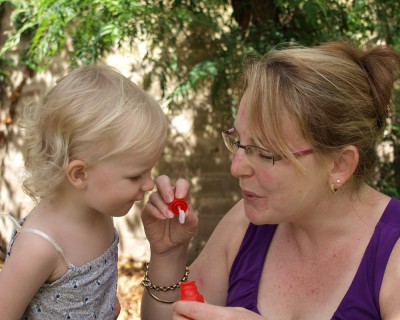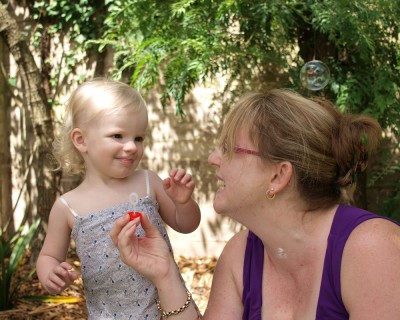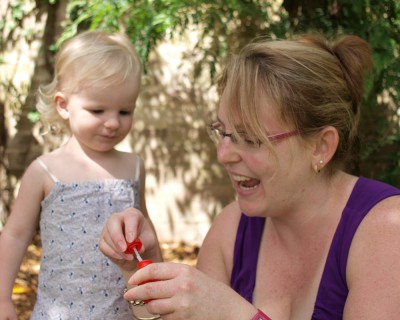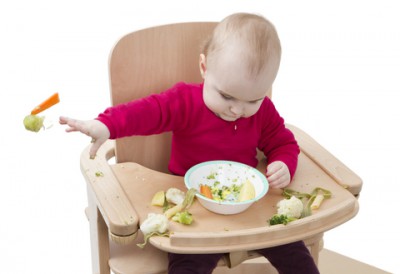Infants & Preschoolers - Parramatta Speech, Language and Literacy Solutions
Play based assessment and intervention for children who demonstrate delays in their communication and/or feeding development.



Communication Difficulties
The following are examples of some of the communication difficulties that children with communication delays in this age group may demonstrate:
- Poor or fleeting eye contact and poor joint attention (i.e. the ability to ‘share’ an activity or event with another person through the use of eye contact, facial expression, gesture, vocalisations and/or words).
- Poor attention span and easily distractible.
- Little or no imitation of verbal and /or non-verbal behaviours.
- Difficulty taking their ‘turn’ during interaction with others.
- Difficulty waiting (e.g. for others to take their ‘turn’, for activities or events that will be occurring at a later time).
- Difficulty making choices when given a choice of two items / activities.
- Difficulty understanding their daily routines and activities.
- Be late to talk (i.e. first words appear after 15 – 18+ months of age).
- Have a vocabulary of less than 50 words by the age of 24 months, haven’t started to combine words together, and continue to use more gesture than words when communicating with others.
- Have difficulty acquiring new vocabulary.
- Be difficult to understand most of the time (i.e. unclear speech).
- Experience difficulty understanding and expressing basic concepts such as colours, animals, size (e.g. ‘big’ versus ‘little’), body parts, early counting.
- Poor understanding and use of a range of verbs (i.e. ‘doing words’) such as ‘jump’, ‘run’, ‘walk’, ‘eat’, ‘drink’, ‘pour’, ‘catch’, ‘listen’, ‘play’, ‘look’ .
- Difficulty understanding and using a range of early prepositions (i.e. location words), such as ‘in’, ‘out’, ‘on’, ‘off’, ‘up’, ‘down’, ‘over’, ‘under’, ‘next to’, ‘front’, ‘back’, ‘inside’, ‘outside’.
- Have difficulty answering and asking simple WH- questions (e.g. “Where is Daddy?”, “What is your name?”, “Who is wearing pink today?”).
- Have difficulty following simple instructions (i.e. 1 and 2 step instructions such as “Give me the pink crayon”, “Get your shoes and give them to Dad”).
- Have trouble putting words together to form both short and longer sentences.
- Have trouble structuring their sentences correctly.
- Unable to initiate play and interact appropriately with their peers.
- Experience frustration and other negative emotions in relation to getting their messages across successfully to others.
Assistance can be provided in relation to your child’s transition to day care / preschool and school.
If your child demonstrates any of the communication difficulties listed above, or if you have any other concerns about your child’s communication development, please contact Parramatta Speech, Language and Literacy Solutions to book an assessment.
 Feeding Difficulties
Feeding Difficulties
Children with feeding delays in this age group may demonstrate any of the following difficulties:
- Poor attachment to the breast or bottle
- Poor weight gain
- Reluctance to eat
- Significant fatigue during mealtimes
- Difficulty controlling the flow of fluid from the breast or bottle and subsequent coughing and/or gagging during feeds
- A history of chest infections
- Strong preference for smooth, pureed solids and refusal of lumpier solids
- Coughing and gagging on solids, particularly ‘lumpier’ solids
- Poor tongue use during eating
- Poor biting and chewing
- Difficulty transitioning from bottle feeding to cup drinking
- A very limited diet and a reluctance to try ‘new’ foods
 Personally tailored advice and recommendations can be provided to:
Personally tailored advice and recommendations can be provided to:
- improve your child’s feeding skills
- reduce your stress and worry about their physical growth and development, and
- help make mealtimes more pleasant for the entire family.
If your child demonstrates any of the feeding difficulties outlined above, or if you have any other concerns about your child’s feeding development, please contact Parramatta Speech, Language and Literacy Solutions to book an assessment.



